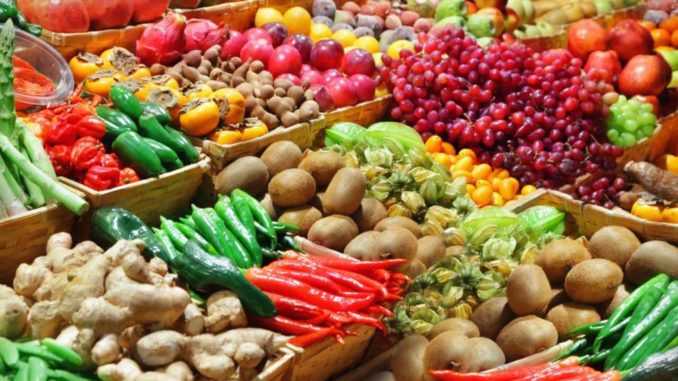
PLANS by the Federal Government to mitigate the high cost of food by establishing a commodity board are self-contradictory. Essentially, Vice-President Kashim Shettima said that the government would establish the National Commodity Board to determine prices and force down the escalating prices of food. This avowal by the Bola Tinubu administration is noble but the implementation might lead to unintended consequences.
At a conference in Abuja on Tuesday on climate change, food systems and resource mobilisation, Shettima said the NCB would have the authority to “continually assess and regulate food prices, maintaining a strategic food reserve for stabilising prices of crucial grains and other food items.” This is another artificial policy.
The Tinubu government should be wary of creating another cost centre, which will deepen bureaucracy. Already, the Federal Government has redundant Ministries, Departments and Agencies and is spending 98 per cent of its revenue to service debt.
Indeed, food prices are exorbitantly high these days. The National Bureau of Statistics lists the December food inflation at 33.93 per cent, up from the 23.75 per cent in December 2022. Reports say the prices of staples like rice, beans, oils, plantain, grains, fish, poultry, and meat have surged by 50 per cent. There have been protests in Niger, Osun, Lagos and Kano states against the harsh development.
To bring relief, the government wants to regulate prices. This is a contradiction in part because the Tinubu government professes to be laissez-faire in outlook. The President demonstrated this during his inauguration last May when he allowed market forces to determine the cost of petrol. This has a huge impact on transportation, and on the prices of food.
The following month, with his prompting, the Central Bank of Nigeria merged the multiple rates of the naira. From N460.70 per $1 then, the naira is exchanging for around N1,500/$ currently.
Since those twin policies, prices have taken on a life of their own. But what’s sauce for the goose is sauce for the gander: if Tinubu abolished the regulation of petrol prices because he subscribes to economic liberalism, he cannot turn around suddenly to fix food prices.
Other causes are insecurity, shabby road infrastructure, advancing desertification, climate change, crop diseases, ‘nuisance taxes,’ rudimentary farming system and poor political will.
Without firmly addressing these factors, the prices of food are not likely to diminish.
Rather than trigger another round of confusion in the system by fixing food prices, the Tinubu administration should try other means. According to the CBN, Nigeria’s annual food import bill is $15 billion. With the depreciation of the naira, the impact of this is devastating on food prices. So, the government should rebuild the value of the naira.
Through domestic refining, there should be genuine efforts to reduce the prices of diesel and petrol, the major fuels for transportation. If the cost of transportation reduces, food prices will contract.
ActionAid Nigeria says Nigeria suffers 50 per cent post-harvest losses, amounting to N3.5 trillion annually. The federal, state and local governments should build storage facilities to accommodate the excess foods during harvest. Perishable items like tomato and fruits should be processed to keep them edible.
But all these plans will falter without significantly improving the security system. This has nearly destroyed food production in Nigeria in which agriculture, at 21.01 per cent in 2023, is the largest contributor to the GDP. In many states, farmers have abandoned their farms. So, Tinubu must stop paying lip service to state police to reduce the security breaches.
State governments should prioritise the construction of rural roads to ease the transportation of farm produce to the urban centres.
END

Be the first to comment